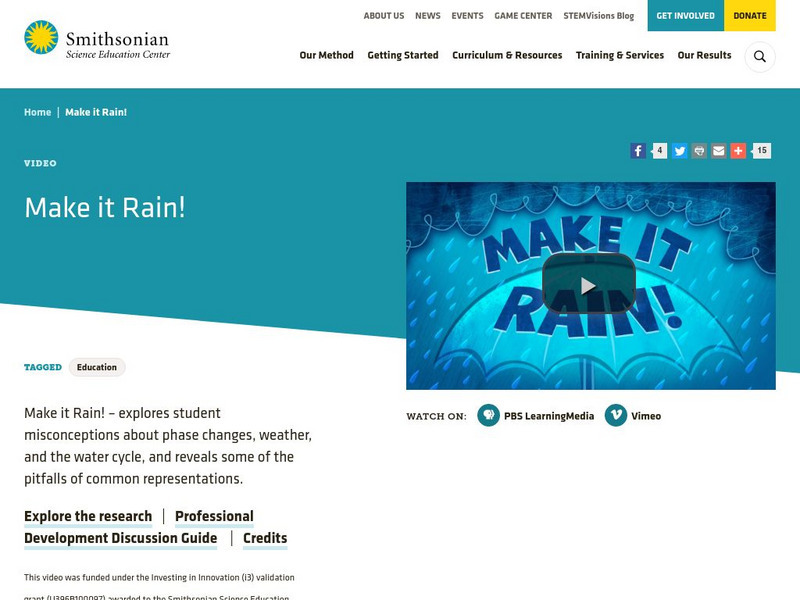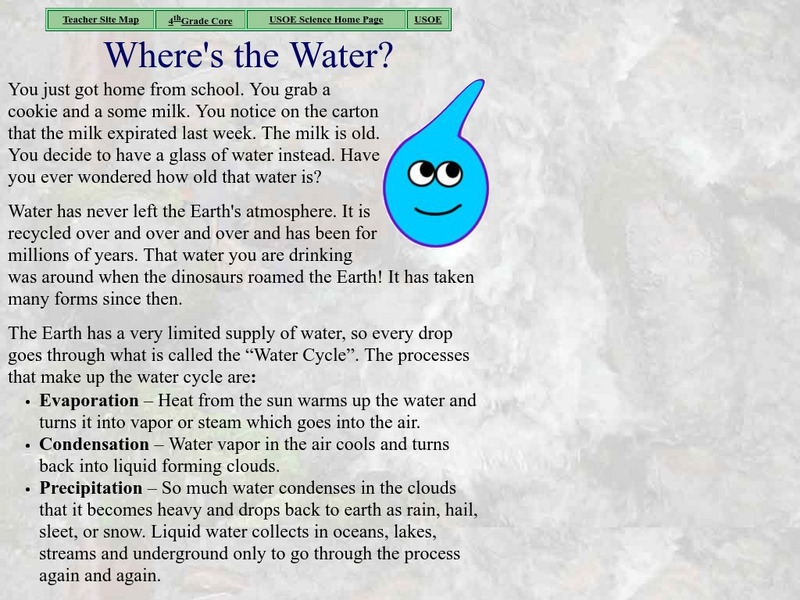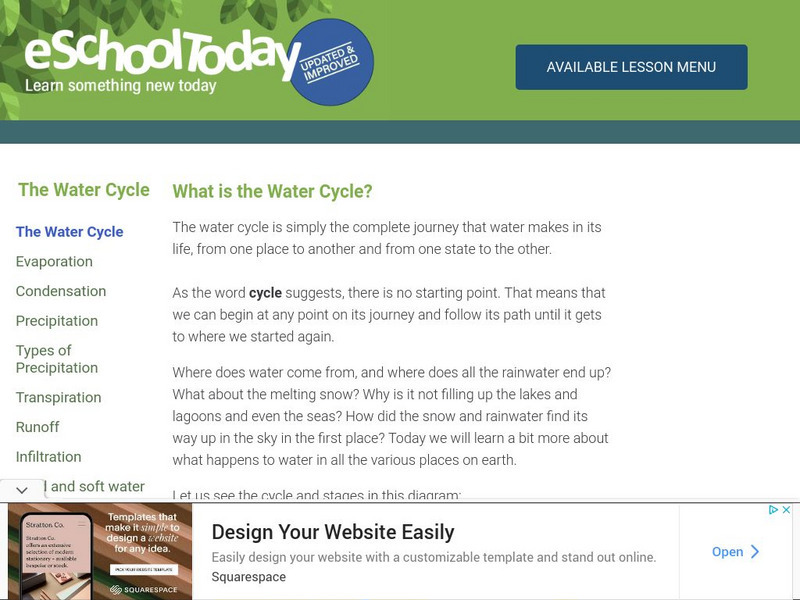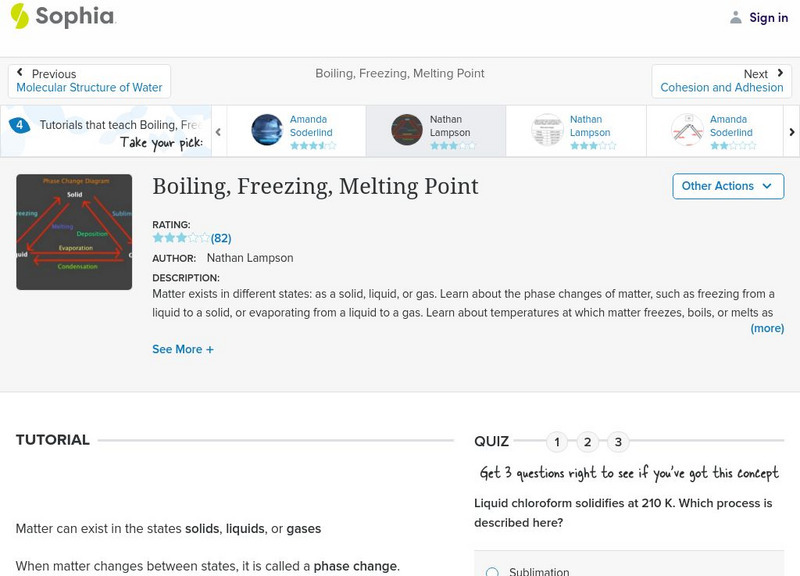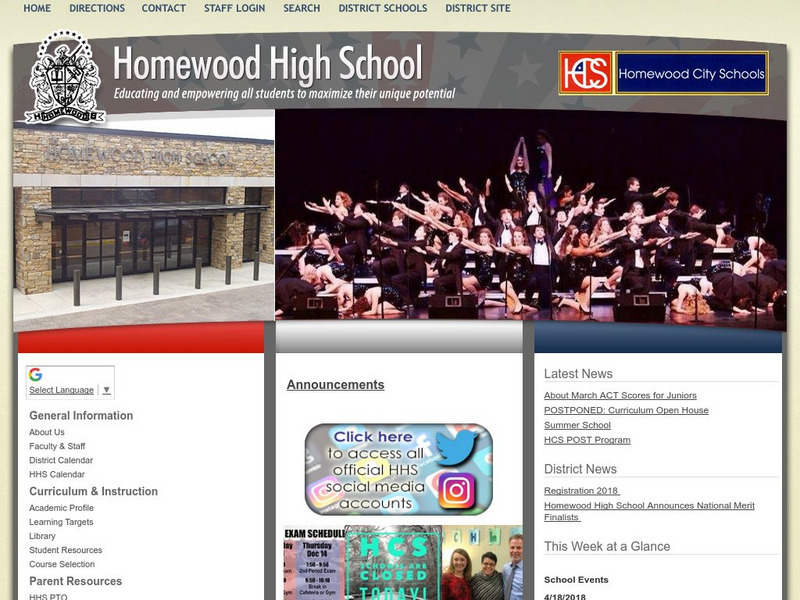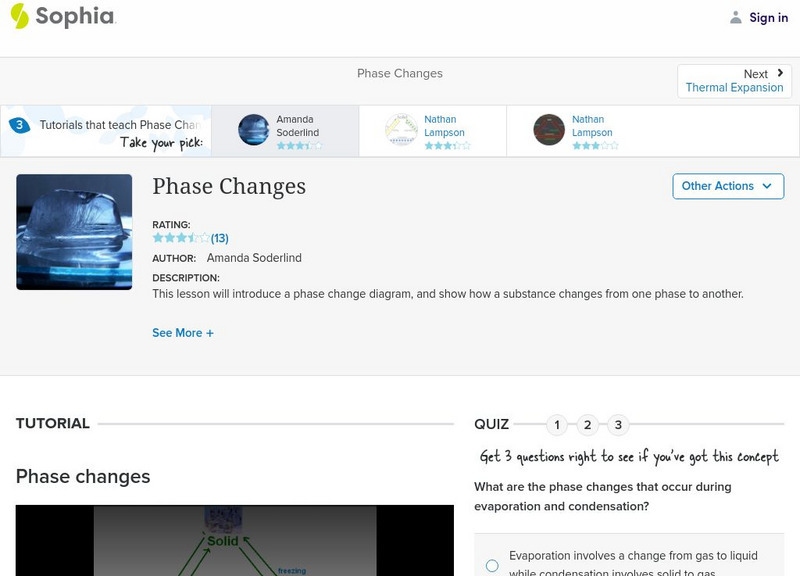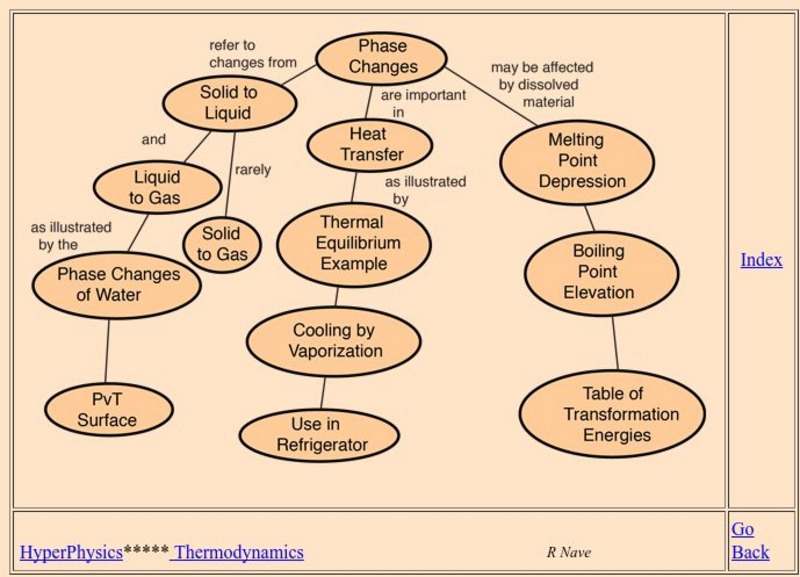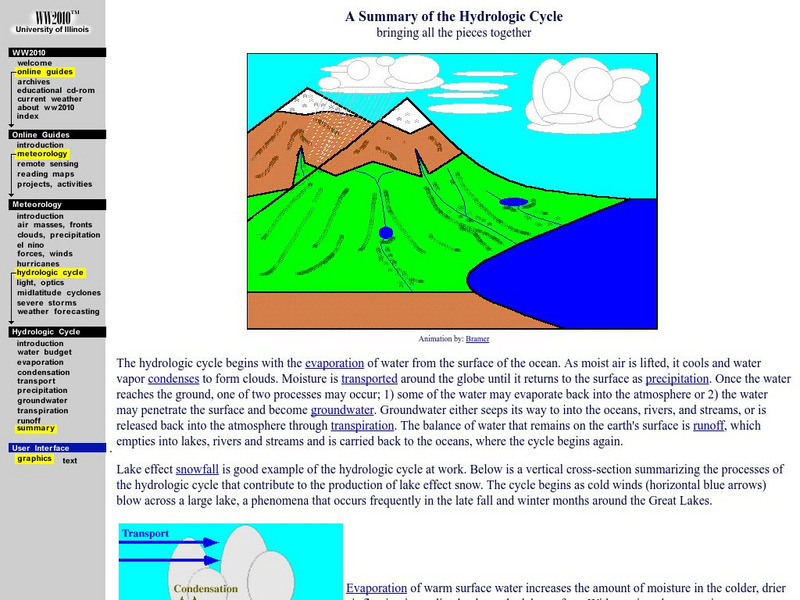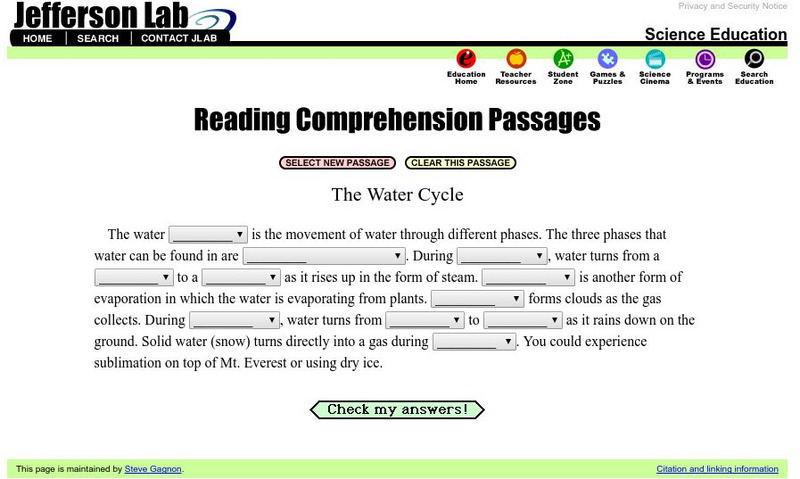Hi, what do you want to do?
Science Buddies
Science Buddies: Make a Water Cycle Model
In this instructional activity, students will explore how water is continually cycled among land, the oceans, and the atmosphere.
Smithsonian Institution
Smithsonian Science Education Center: Make It Rain
How do you show students that the water cycle is more than just the traditional model of the ocean, clouds, and mountains and actually a part of their daily lives? This video will show multiple models of different part of the water cycle...
Utah State Office of Education
Utah Science: Where's the Water?
Discover the ins and outs of the water cycle through this collection of experiments and activities.
eSchool Today
E School Today: Your Revision Notes on the Water Cycle
Learn about the different stages of the Earth's water cycle, and about processes involving water, including runoff, infiltration, and the differences between hard and soft water.
Sophia Learning
Sophia: Boiling, Freezing, Melting Point: Lesson 2
This lesson will introduce the phase changes that occur at the boiling, freezing, and melting points. It is 2 of 4 in the series titled "Boiling, Freezing, Melting Point."
Sophia Learning
Sophia: Boiling, Freezing, Melting Point: Lesson 4
This lesson will introduce the phase changes that occur at the boiling, freezing, and melting points. It is 4 of 4 in the series titled "Boiling, Freezing, Melting Point."
Sophia Learning
Sophia: Boiling, Freezing, Melting Point: Lesson 1
This lesson will introduce the phase changes that occur at the boiling, freezing, and melting points. It is 1 of 4 in the series titled "Boiling, Freezing, Melting Point."
Other
Homewood City Schools: Classification of Matter
This Homewood City Schools site has an outline form and contains lots of information about the classification and composition of matter. Some of the topics covered are matter and temperature, changes in state, composition of matter, and...
Sophia Learning
Sophia: Phase Changes: Lesson 1
This lesson will introduce a phase change diagram, and show how a substance changes from one phase to another. It is 1 of 3 in the series titled "Phase Changes."
Alabama Learning Exchange
Alex: Water Cycle Model
This hands-on model of the water cycle is a great culminating activity for a study of the movement of water through the environment. Completed in small groups or as a class project, it involves connecting three bottles to demonstrate the...
American Geosciences Institute
American Geosciences Institute: Earth Science Week: Water: A Never Ending Story
Students carry out a number of activities that demonstrate the concepts of evaporation, condensation, precipitation, and soil moisture and runoff. Then students construct a terrarium as a way to observe the water cycle. Immediately...
Georgia State University
Georgia State University: Hyper Physics: Phase Change Concepts
An indexing page for the HyperPhysics site. This page includes links to a variety of pages at the site which contain information related to phase changes. Each individual page consists of informative graphics and clear explanations.
University of Illinois
University of Illinois Urbana Champaign: A Summary of the Hydrologic Cycle
Animation and text explain the water--or hydrologic--cycle, which is the process that water undergoes in nature.
Thomas Jefferson National Accelerator Facility
Jefferson Lab: Reading Passage: The Water Cycle 2
Read and fill in the blanks of this passage explaining the water cycle. Each blank has a dropdown menu with choices. When you finish, click CHECK MY ANSWERS. If you pick a wrong answer, the right answer will be displayed along with your...
US Geological Survey
Usgs: The Water Cycle
Learn about the movement of water from Earth's surface to the atmosphere with this site. Site describes the water cycle in words and with a diagram. Also explored on the page is the distribution of Earth's global water supply.
Center of Science and Industry
Cosi Columbus: Clues About Clouds
Science experiment that simulates how clouds are formed. Includes full list of materials, procedures, and scientific explanation of what must happen in the atmosphere for cloud formation to occur.
University of Victoria (Canada)
Weather Watch: Water Cycle
Excellent discussion and illustration of the water cycle.
University of Victoria (Canada)
Weather Watch: Water Cycle
Excellent discussion and illustration of the water cycle. Explained in an easy to understand format.
Success Link
Success Link: Water Cycle
A lesson plan to show students' understanding of the water cycle through illustrations, and their ability to write creatively about it.
Alabama Learning Exchange
Alex: The Water Cycle
This is an introductory lesson on the water cycle. The internet will be used to help teach the cycle. The student will end the lesson by making his/her own water cycle for observation.This lesson plan was created as a result of the Girls...
Concord Consortium
What Happens to the Energy of Water Molecules During Hurricanes?
How does energy charge when evaporation is reversed? and What powers a hurricane? are explored in this module.
Science Buddies
Science Buddies: Cumulus Maximus: Make Your Own Cloud!
In this experiment, you'll make your own cloud in a jar, and get to test the conditions that are required to make a cloud form.
New York University
Nyu: Welcome to Water
Educational resource invites users to understand the properties of water by first examining what water is and how we use it and then leads users to further information on the three states that water can exist.
Science Education Resource Center at Carleton College
Serc: Investigating How Do Clouds Form? What Are the Different Types of Clouds?
For this investigation, students will observe and learn about the different types of clouds and be able to explain in their own words how clouds are formed. They will also observe an experiment illustrating how clouds form.






